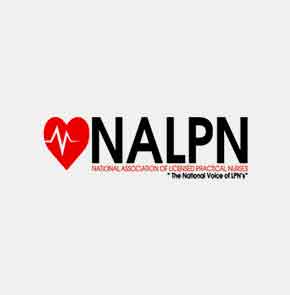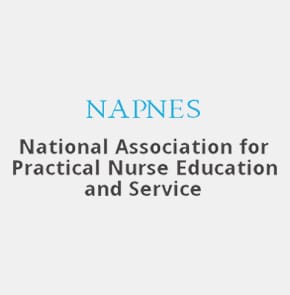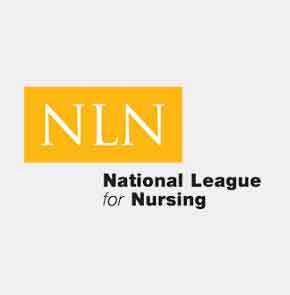Get Matched With Health Services Programs
What Does an LPN Career Entail?
As a Licensed Practical Nurse (LPN), you will deliver the large majority of healthcare to patients in hospitals, long-term care facilities, mental health offices, emergency locations, or another medical setting of your choosing involving patient care. Even though you may not have a registered nurse (RN) degree, you will be one of the most-valued healthcare professionals in the health field. Licensed practical nurses enter the field because, along with their interest in the medical field, they are interested in the field and feel compassion toward those suffering from illness; they want to help them with their nursing degree and are effective communicators.
Licensed practical nurses are trained professionals who provide basic medical care to any patient in the acute or long-term care facilities where they work (such as nursing homes), which they can do with the equivalent of an associate degree. You’ll work under the direction of registered nurses (RNs) and doctors. You'll work very closely with your patients; in fact, you’ll spend about 90% of your time with them. And you have the opportunity to move on from this position with an LPN to RN program or a Bachelor of Science in Nursing (BSN) from a nursing school and become an RN yourself, working on hospital staff or in an allied health facility.

Components of a Successful LPN Career
If you want to become a nurse, you should be willing and able to take on a great deal of the stress within a healthcare setting. You’ll ease patients’ stress by communicating openly with them. You’ll keep track of patient conditions, vitals, and treatments given by writing everything into their chart. You’ll also organize supply cabinets and paperwork so that the registered nurses and doctors you work with can view everything more easily and work more efficiently.
How do you keep your nursing career on track while dealing with so much stress and work? First, you could find a mentor or peer member to help you when you need to vent. Second, you must know how important sufficient rest is. Follow a suggestion you might find yourself giving to others and get the rest you need. Enjoy recreational time and hobbies on your days off.
To get your certificate and find employment, you'll need to complete your LPN program and pass your NCLEX exam. LPN programs are available across the country, take the length of about a year or a short associate degree program, and also provide easy access to further bachelor's degree programs which can boost your career even further than the position of a licensed practical nurse (LPN).
Compare Popular Online Health Services Programs
How to Earn a Degree or Certification online for Licensed Practical Nurses (LPNs)
Typical LPN Degree Requirements

In your classes, you’ll move from the fundamentals of nursing to the structures and functions of the human body. You’ll also have to take some other classes such as English and math. In nursing school, you’ll take plenty of nursing classes that will give you the foundation you need to be a skilled, competent licensed practical nurse (LPN).
Typical LPN Certifications Needed
Once you have finished your nursing school program, you will receive a diploma. Depending on the program you enroll in, this can take about 1-2 years.
But, as a new alumni, and before you walk into your first day of work, you need to sit for your licensing exam given by the National Council of State Boards of Nursing, the National Council Licensure Exam (NCLEX-PN). The test the board offers for licensed practical nurses is different and has different content and info than the one offered for registered nurses. Once you pass this exam, you will receive your license, allowing you admission to work in one of a variety of allied health settings, such as clinics, private homes, long-term care facilities like nursing homes, mental health in-patient care facilities, etc.
Find Your Online Health Services Program
Academic Standards for an LPN Degree
Because of the work you will be doing, helping sick and/or elderly patients, you must attend and complete a state-approved educational nursing program. You will take courses that go beyond general education such as English, math, and science.
You will take biology, pharmacology, and nursing classes. You’ll also be required to undergo educational training, often referred to as clinicals.
Exam/Experience Needed for an LPN Degree

You should have people skills, such as interpersonal skills, compassion, and patience. Your patients will not be feeling well, so they might not be on their best behavior.
If you have done work before that required you to pay attention to the smallest details, this will be an excellent backup for your work as an licensed practical nurse. If you have good dexterity, you’ll be appreciated by your supervisors. Physical stamina is a must. You need to be able to end your day without losing energy or flagging.
You have read about the NCLEX-PN exam you will have to take after graduating. But, to get into a nursing program, you will need to take the Test of Essential Academic Skills (TEAS). Passing this test enables you to get into a nursing school.
Online Licensed Practical Nurse Degree Options
In a Licensed Practical Nurse program, you will focus on this one program. Because the time frame is so short (12 months, approximately), you won’t have the time to branch into any nursing specialties.
You will learn patient care and clinical nursing training. You’ll begin to develop healthcare insights and learn to feel comfortable, taking care of patients, providing fast, skilled nursing care in whatever setting you select.
As a community college offering, you should not need to complete any prerequisite classes. If you do need to take any remedial classes, take these before you enter the nursing portion of your program.
Once you graduate and pass your licensing exam, you’ll be able to begin providing daily nursing care to the patients who will soon be assigned to you.
In a licensed practical nurse program, you will take the following classes:
- English Composition
- College Math
- General Psychology
- Computer Essentials
- Medical Language
- Applied Anatomy/Physiology
- Applied Anatomy/Physiology Lab
- Introduction to Nursing
- Introduction to Nursing Lab
- Introduction to Nursing Clinical
- Introduction to Pharmacology
- Medical/Surgical Nursing
- Medical/Surgical Nursing Lab
- Medical/Surgical Nursing Clinical
- Advanced Pharmacology
- Maternity and Pediatric Nursing
- Maternity and Pediatric Nursing Clinical
- Medical Surgical Nursing, II
- Medical Surgical Nursing, II Clinical
- Responsibilities of the LPN
- NCLEX-PN Review
- Clinical Practice
Cost Range for Online Degree
Different community colleges have set different tuition rates, based on their circumstances. What you see here may not apply to colleges in your community.
On-campus: $309 per credit hour
Online: $423 per credit hour
(Because of the complexity of nursing education, students may pay a higher tuition rate than for other majors.)
Non-resident Students:
On-Campus: $624.90 per credit hour
Online: $477.40 per credit hour
Earning Potential for LPN Graduates
Licensed practical nurses make a good living. Their skill and knowledge are badly needed in the United States. With an ongoing shortage of nurses of all educational levels, healthcare settings all offer a good median annual salary that reflects the value these professionals offer.
A licensed practical nurse with no specialization can earn $28,000 right after passing their first licensing exam. As they accumulate years and experience, their salaries will increase accordingly.
A licensed practical nurse with Hospice skills will earn a little more than the LPN with no specialization. They will bring home $29,000 in entry-level median annual salary.
The licensed practical nurse with Pediatrics skills may earn a little bit less in entry-level, median annual salary: $24,000.
Difference, Impact of Pay from Earning an AA with Experience, Salaries
Licensed practical nurses have about 12 months of education backing up their healing work. Comparing their entry-level median annual salary to that of a certified nurse assistant (CNA), it’s easy to see that their hours of study will pay off. Where the CNA earns $15,000 median annual salary at the entry level, that of the LPN is noticeably higher—$28,000. The Bureau of Labor Statistics (BLS) states that the lowest 10% earned less than $32,970, so it’s easy to see that their pay is roughly double that of a CNA.
Find Online Health Services Schools
LPN Fields of Study Median Salaries
LPN Fields of Study
- Licensed practical nurse: At this level, the LPN will use their lengthy training as they carry out their assigned nursing tasks. They know that they are responsible for completing several goals for patient care in a work day. The LPN will make use of their communication and interpersonal skills to learn just how their patients are feeling.
- LPN-Hospice: Working in a hospice, the LPN is working with patients who are approaching death. They will be required to make full use of their nursing knowledge, so they can make their patients comfortable (offering palliative care). In this environment, they must be highly attentive to the signs their patients are showing.
- In the pediatric setting, LPNs have to rely on their observational skills so they can detect changes in their young patients. They will be communicating extensively with the parents of their patients, so offering comfort will also be a big part of their daily job. Organization is vital as they prioritize the tasks that are the most important to complete.
Field of Study Associates Salary
Field of Study Average Salary by Degree Level
| Field of Study | Training/Associate’s | Bachelors Salary | Masters Salary |
|---|---|---|---|
| Licensed Practical Nurse | $41,246 | - | - |
| LPN w/Hospice Skills | $42,352 | - | - |
| LPN w/Pediatrics Skills | $39,158 | - | - |
LPN Salaries by Occupation
Introduction for Salary by Occupation
Again, depending on the healthcare specialization that an LPN has chosen, their annual pay will reflect this. At the middle of their career, the LPN will be earning between $41,635 and $42,000 per year. And, late in their career, they will be bringing in around $57,000 annually.
LPNs who have experience working in a geriatric setting have specialized skills that are badly needed in a geriatric healthcare arena. On average, the LPN’s median annual salary is $29,000; In mid-career, $43,000 and in late-career, $57,000.
The LPN with home health and home care knowledge is, like the geriatric specialist, highly valued. Entry level salary here is $30,000; mid-career $42,000 and late-career, $58,000.
LPN Occupations
The LPN in home health/home care settings works more independently. Instead of working from a healthcare setting, they go from one patient’s home to the next, working with their needs so they are able to remain at home, living more independently than if they were to be in an assisted care, nursing home or long-term care facility. Organization, paying close attention to small details and excellent communication skills are vital here.
Annual Salary by Occupation (Median)
Annual Salary by Occupation
| Occupations | Entry Level Salary Range | Mid-Career Salary Range | Late Career Salary Range |
|---|---|---|---|
| Licensed Practical Nurse | $39,200 | $45,600 | $48,100 |
| LPN w/Hospice Skills | $37,600 | $47,000 | $49,300 |
| LPN w/Pediatrics Skills | $4,100 | $42,400 | $46,100 |
| LPN w/Geriatrics Skills | $39,500 | $47,900 | $49,600 |
| LPN w/Long-term Care Skills | $39,500 | $47,200 | $48,700 |
| LPN w/Home Care Skills | $37,400 | $48,500 | $49,300 |
| LPN w/Family Practice Skills | $39,200 | $42,200 | $45,600 |
| LPN w/Psychiatric Skills | $39,000 | $42,000 | $43,000 |
| LPN w/Dialysis | $45,000 | - | $46,000 |
Important Questions to Ask (FAQ)
How Long Does It Take to Earn an LPN Degree Online?
This degree isn’t a bachelor’s degree. You will take some general education courses that will help build your skills, then your core classes. Expect to graduate in about 12 months, depending on the education institution.
You should know that your completion time relies on how many credits transfer from other colleges, and how many courses you complete each term. Depending on the educational program you choose, you’ll have the option of taking classes online. Check with the institution about portions of your program that require hands-on exercises. You may be able to record yourself on video and submit that to your instructors.
How Much Does an Online LPN Degree Cost?
Post-secondary education always costs you something. As you look for the right college, make sure to check the tuition and fees, so you know ahead of time how much you’ll be committed to spend. (You will be able to defray much of these costs with grants and scholarships.)
At one community college, the entire program will cost you $17,040 not including additional expenditures, such as books, fees, and materials. You may also have to pay a fee for a technology package, so you can connect to the college’s network to complete assignments.
Does the School Have the Major(s) You’re Considering?
Once you decide to look for LPN programs to enter, you need to check whether the schools you’re considering have LPN programs or a major in nursing or allied health. Trying to transfer your general education classes from one college to another because the first college doesn’t have a nursing program is too much trouble to go through. When you want to graduate, complete your licensing exam and begin working, you don’t want any delays.
Call the admissions office and ask if the school carries a nursing program that would allow you to become an LPN. If not, move on to the next college.
How Many Students Graduate On Time?
No matter what type of online degree program you’re taking part in, you can always experience situations which may force you to halt your classes, delaying your graduation. This is true for online bachelor’s degree programs, community college classes, and even nursing programs. You can’t predict what will happen.
Undergraduates are finding themselves staying in school beyond the four-year mark more and more often. Currently, fewer than 50% of them complete their program in four years. This costs them money and adds to any loan obligations they have.
Focusing on community college students, fewer than 36% completed their programs and earned a post-secondary diploma in less than six years. One major reason for this is that too few are declaring a program of study (major) when they enter community college. If you start school knowing you’re aiming for an licensed practical nurse certification or degree, then this at least shouldn’t be a problem for you.
What Kind of Accreditation does the Program Hold? How is it Regarded in the Field?

First, they should have a college-wide accreditation based on the region of the country where they are located. Second, each online degree program should have a program accreditation. For community college nursing programs, this is provided by the Accreditation Commission for Education in Nursing (ACEN).
Accreditation provides several benefits to schools and programs. Schools know they have hired top-quality faculty; students know they are getting a strong, rigorous education.
Software, Technology & Skills Needed
Beyond the expected nursing skills you’ll be learning, you should already have other non-nursing skills that will aid you as you work with your future patients.
- Decision-making skills: You need to know how to make the best decision in the moment, then be able to defend it. At times, you will have to think and decide quickly on a course of action.
Search Programs Offering Health Services Majors
- Communication skills: You will have to be able to communicate several things about your parents, both orally and in writing. Other healthcare team members rely heavily on your ability to communicate accurately and succinctly.
- Time management skills: Every minute of every day will be committed to some type of nursing activity. In a hospital setting, you will be caring for several patients, depending on patient load and staffing.
- Supervisory skills: You will be overseeing the activities and work of nursing assistants and orderlies. An ability to supervise so that your nursing care is smooth and functional means your patients will be in good hands.
- Computer skills: You’ll be expected to enter your nursing notes on the computer, which is in use in nearly all work settings. Your notations should be up-to-the-minute and accurate.
- Clinical skills: You’ll learn these during your classes and hands-on practice. When your supervisor or a doctor tells you to take blood for a test, you’ll know what to do.
Your technology skills should be strong. While you won’t have to program, you will use a computer to enter patient demographics and health history into a database, which enables everyone who needs access to know what is happening with your patients. You will use voice recognition technology, electronic medical record (EMR), personal digital assistants and e-prescribing. You may also handle other administrative tasks, as well as nursing education.
You’ll get early exposure to technology requirements when you begin your nursing program. Expect to be skilled in word processing, PowerPoint, Excel, email, internet, electronic library searches for retrieving a patient’s clinical information, using spreadsheets, using audiovisual materials, laptop, scanner, printer and fax machine.
LPN Scholarships
Even though you’re not going to be in school for four years, you still might need financial help to get through school. Rather than applying for student loans, then dealing with them for several years after graduation, opt for grants and scholarships.
-
DAR Nursing Scholarships - Caroline Holt Scholarship
Amount: $2,500
Deadline: February 15The scholarship awards three students each year with one-time funds of $2,500. The decision criteria includes financial need. Eligible students must be enrolled in an accredited school of nursing. The student must complete an application and a financial aid form for the committee’s consideration before the application due date.
-
FNSNA Undergraduate Scholarship Program - Promise of Nursing Program
Amount:$1,000-$7,500
Deadline: JanuaryThe promise of nursing program works through participating schools of nursing. Students should check to see whether their school or college zip code meets the location requirements for this program. CNA students enrolled in a combination program for LPN or LVN can apply for this scholarship. It is open to students currently enrolled in a state-approved nursing program that included LPN or LVN to RN completion. The categories include pre-nursing students taking courses for entry into a nursing program. Students must show involvement with student nursing organizations, and community health activities.
-
National Black Nurses Association Scholarship Program
Amount: $1,000-$15,000
Deadline: VariousI you are eligible for any of the scholarships available from the NBNA, it’s worth checking them out. They provide a number of scholarships available for African-American students who are looking at entering a variety of specific and general nursing fields, including BSN, pediatrics, end of life care, etc. The requirements vary for the multiple scholarships available, so go to their website for full details.
-
Latinos in Technology Scholarship
Amount: Up to $3000 over three years with renewal (Up to 100 awards)
Deadline: November 13The awards for Latino students include scholarship funds and opportunities for internships in the summer months with Silicon Valley firms. The eligibility is for any STEM field, and in Nursing, there are information and computer-based fields such as nurse informatics, life sciences, and nursing statistics. Applicants must be graduates of a high school or attend a college in the region defined by the following counties: Graduate of a high school in the following Northern California counties: Alameda County, Contra Costa County, Marin County, Napa County, San Francisco County, San Mateo County, Santa Clara County, Santa Cruz County, Solano County, Sonoma County and Yolo County.
Professional Organizations
- NALPN
- NAPNES
- NFLPN
- NLN

NALPN
National Association of Licensed Practical Nurses
NALPN was organized for LPNs, licensed vocational nurses (LVN), and practical/vocational nursing students in the U.S. This organization has successfully identified who the LPN is. In addition, NALPN reminds the public that the LPN is highly educated and will performs important medical duties, such as administering medication and treatment; insertion and removal of IVs and catheters, monitoring IVs, and carrying out tracheostomies (If they have received specialized training).

NAPNES
National Association for Practical Nurse Education and Service, Inc.
NAPNES has devoted itself to defending and promoting the education, regulation, and practice of LPNs, LVNs, practical nursing instructors, practical nursing schools, and practical nursing students.
NFLPN
National Federation of Licensed Practical Nurses
NFLPN was founded in 1949 and offers its membership to LPNs, LVNs, and students. It also offers leadership and support to members, working to secure recognition for LPNs working in the healthcare community. NFLPN keeps members informed about nursing issues and trends in healthcare. It makes information available to students and nurses about high practical nursing standards across the nation. NFLPN stresses continuing education for its members.

NLN
National League for Nursing
NLN stresses excellence in nursing and is the premier nursing organization for both nursing faculty and nursing education leaders. The main goal of NLN is professional development, testing services, nursing research grants, networking opportunities, and public policy initiatives, all of which it offers to its 40,000 members. NLN members all represent nursing education programs from across the spectrum of higher education, agencies, and healthcare organizations. NLN was founded in 1893 as the American Society of Superintendents of Training Schools for Nurses and was the first nursing organization in the U.S.
Choosing an Accredited College
It’s vital for you to choose an accredited college, no matter your major. If you are go-ing to attend an online, e-learning, distance or hybrid program, these programs should also be accredited.
Accreditation agencies look closely at educational programs all across the U.S. They are looking for high educational standards and high-quality faculty that will ensure that you are exposed to only high-quality, valid educational material as you are learning about your chosen field. If your program is not accredited, you won’t be eli-gible to apply for financial aid.
Online vs. On-Campus vs. Hybrid
Online learning gives you several benefits that students on-campus won’t receive. If you are working, you’ll be able to arrange your class and study schedule around your working hours. In addition, you can attend class at home, a coffee shop, library or any space with a Wi-Fi connection. You may pay less for your education—tuition may be lower, book supplies will be lower, and you won’t have to worry about paying for on-campus housing or transportation.
Hybrid (or blended) classes are a combination of on-campus classes and online classes. Your “seat time” may be limited to one or two weekends on campus—the rest of the time, you take your classes solely online.
Frequently Asked Questions
Does the College Have Post-Graduate Job Placement Help and Assistance?
Most, though not all, colleges have placement or career services offices on campus. Here, you will be able to initiate your job search, find job openings, tweak your resume, and create a cover letter. You may also be able to take part in job fairs and mock interviews.
Once you’ve graduated, you will also be able to return for additional assistance.
Why You Need to Consider the Overall National Rankings of the College and the Effects on Your Career or Salary
College rankings are only as good as the categories they look at. The best way to determine if a program meets your needs is to go to the college and take a tour. Ask questions of the tour guides and figure out if the college is a good match for you. Unaccredited colleges may not be of the highest quality. You may find that you have taken courses at a diploma mill, which means that the diploma won’t be worth the paper it has been printed on.
Employers will check the accreditation status of your alma mater. If it is accredited, you may be offered a higher salary; if not, your salary offer, if you get one at all, may be lower.
Are math skills important for LPNs?
While an LPN degree isn’t a physics or mathematics degree, that doesn’t mean that you can avoid all math by earning this nursing degree. After all, there are a few math skills that are foundational to nursing education. These include adding, subtracting, multiplying, dividing, dividing decimals and fractions, and even converting from the imperial to metric system. These will be the basic skills you need to complete an LPN degree so, even if you never found yourself to be a math whiz, you should have no trouble gaining the math skills you need to succeed.
What are some of the hard skills necessary to be an LPN?
Some of the hard skills to ensure you gain and maintain as an LPN are those that support patient safety, education for patients and family members, computer skills because the technology supporting nursing professionals is constantly shifting, supervisory skills, and clinical skills. Patient safety is difficult mostly because it is so important not to make mistakes that can lead patients to suffer. Knowing what to tell patients and their family is also very important. Computer skills are both necessary and a shifting target, with the requirements and technology suites changing both over time and with each different facility where you might work.
What is on the LPN entrance test?
There is one entrance exam that is most often used for RN and LPN nursing schools, and this is the HESI A2 nursing school entrance exam. The test has nine sections that cover biology, chemistry, grammar, math, and reading comprehension. Most of the questions only require a high school level knowledge, but they are deeply focused on science topics and you are likely going to need to do at least some studying to pass it on your first try.
